‘How is the world still silent about Israeli hostages Shiri, Yarden, Ariel and Kfir Bibas?’
Their family is not giving up on Israeli hostages Shiri, Yarden, Ariel and Kfir Bibas. But campaigning for their release has been a gruelling, exhausting job with no tangible result | WATCH
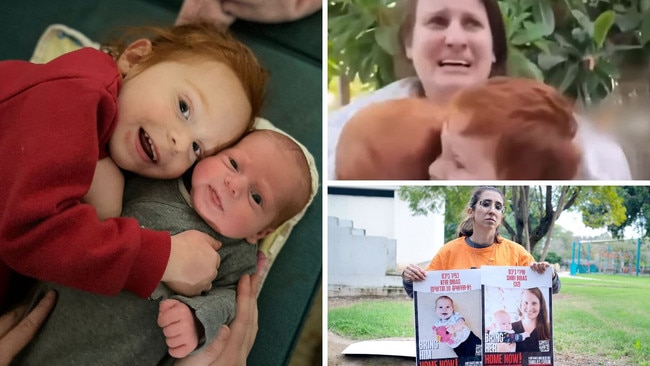
Ginger is the colour of the boys’ hair, which is why Oriya Yahbess faithfully chooses an orange juice inside the convenience store next to her home. Buildings have been lit up in hues of apricot for the two children, and people have filmed themselves baking cakes slathered in rich, tangerine-coloured frosting. There was even a song written about them, a very sad one titled, They Call me Ginger.
All of it’s a rallying cry for Israel’s most recognisable children, Kfir and Ariel, aged one and four, the youngest of the hostages being held by Hamas in the tunnels beneath Gaza, along with their parents, Shiri and Yarden Bibas, their abduction broadcast and shown off to the world on October 7.
Global opinion may be divided on the war but only a minority would attempt a moral defence for snatching civilians as bargaining chips; fewer still would justify the kidnapping of a preschooler, like Ariel, and an infant, like Kfir, who was taken at nine months and marked his first birthday in captivity a fortnight ago.
Ms Yahbess, the boys’ cousin, is among a small group of family members leading the campaign for their release. She’s at a loss to explain how they – of all the captives – haven’t been brought home yet, and there’s disbelief at the paucity of global outrage insisting they be set free.
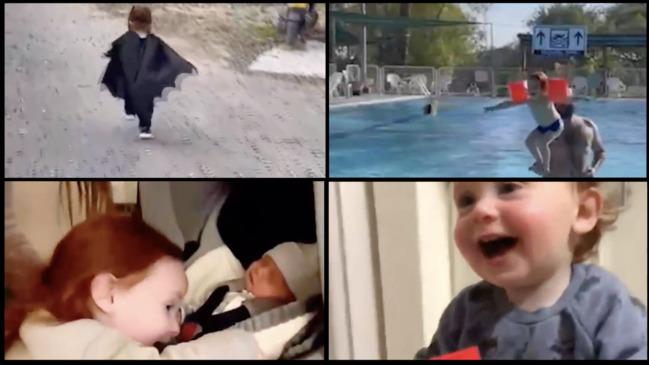
“How is the world still silent?” she asks from her kibbutz on the Jordanian border, a tiny community so closely knit that everyone here is touched by her family’s despair.
It’s why the owner of the convenience store, wearing a distinctive orange T-shirt, shakes his jowls when Ms Yahbess props the bottle of OJ on the counter and tries to pay like everyone else. Arms folded in finality, he makes it clear her money is no good in his store.
“I remember myself screaming and crying and holding my head, like, how did this happen?” she told The Australian, recounting the events of October 7 and the sight of that terrible footage, seen worldwide, of Shiri shielding her children while being kidnapped.
“But, inside, I told myself, OK, it will be resolved in like two days or so – the world won’t let this happen. The earth has to shake for this. But we are three and a half months after, sitting here, and they are not here. How can this be possible?”

The broad expectation among the Israeli public was that the boys and their mother would be released during a Qatari-brokered deal in November that saw dozens of women and children let go by Hamas over a four-day ceasefire period.
Instead, as the hours ticked down and select hostages were handed back, there was no sign of movement for the Bibas family – not until Hamas released video of a distressed and broken Yarden Bibas, filmed just minutes after being informed that his wife and two boys had been killed by an Israeli airstrike.
Israel hasn’t verified that claim and Hamas isn’t providing corroborating evidence. It previously said a hostage named Hannah Katzir, aged 77, had died in Gaza as a result of an airstrike, even though she was eventually released – circumstances that give the Bibas family some hope.
The footage of Yarden is too distressing for Ms Yahbess to watch but she is aware of the contents, and it remains the most recent morsel of intelligence speaking to his present condition. Other bits have been cobbled from the hostages who have returned to Israel. They told the family Yarden was held alone, wasn’t eating or sleeping, and suffering pain all over his body.
“We know two of the women who were with him were very concerned about him, trying to keep him safe with them, because his mental condition was so bad.”
A tragic twist in all this is that the Bibas family weren’t supposed to be in Nir Oz on the morning of October 7. They had planned to drive north to visit Ms Yahbess and her husband, to look at housing options in the area for a prospective relocation.
Ms Yahbess had done the same months earlier after living in the southern Israeli city of Ashkelon and enduring years of persistent rocket fire from Gaza.
“It’s almost like we knew that something big is going to happen,” she said.
Yarden and Shiri were nearing a similar conclusion. “They wanted to move also.”
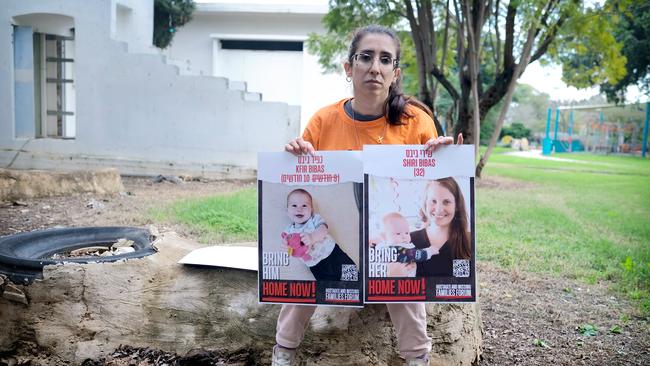
Other valuable details were provided by the other hostages. Unknown until recently was that Yarden had rushed from his house on October 7, armed with a pistol, and attempted to defend his family until he saw the extent of the Hamas infiltration.
He gave himself up, believing that it would save Shiri and the children. “He said, ‘take me’, and by saying that he was sure that he was saving them,” Ms Yahbess said. “So throughout his captivity, by the time that they (Hamas) filmed the video, he was sure that they (his family) are in Israel. He didn’t even know they were taken.”
Campaigning for their release has been a gruelling, exhausting job, a never-ending stream of media requests, diplomatic missions, public speeches.
But with no tangible result achieved so far, Ms Yahbess said the strategies of previous months were out the window at this point.
“We don’t know what’s working, what’s not working, what’s harming, what’s helping – we’re just very tired, very desperate and very much wanting everything to end,” she said.
And she wants to remind the world that these were very simple people. “So regular,” she said.
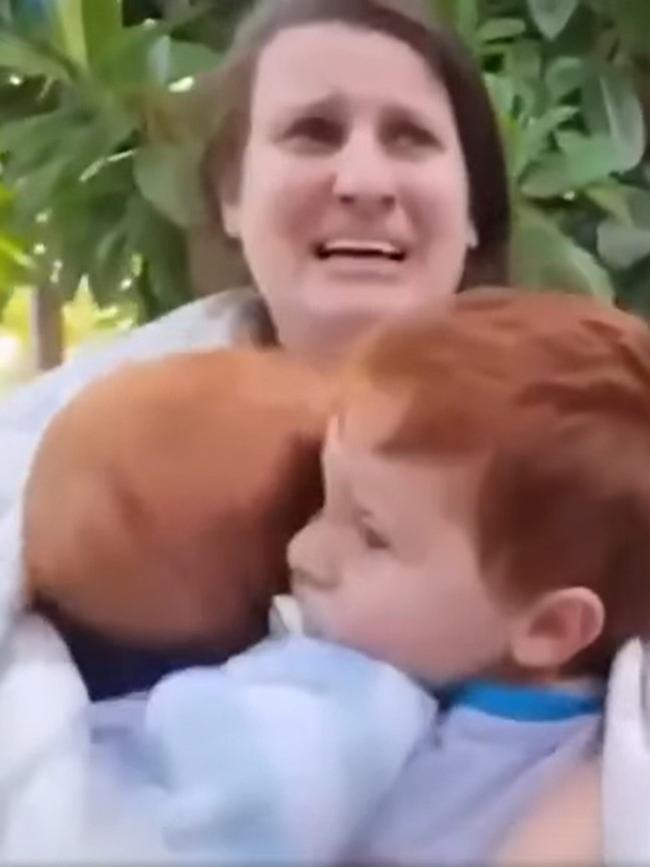
A kindergarten teacher. A welder. Both adoring of their children, good music, a cook-up on the barbecue.
They’d be mortified, Ms Yahbess said, were they were to learn of all the attention.
Another stinging end to this tale is the story of Tonto, the dog that Yarden had saved as a puppy and brought up as a third child in the Bibas household. Tonto was shot dead by Hamas and, dismaying as it is to consider, Yarden would have been forced to see his beloved pet dead outside his home while being led away.
“It’s really strange to see their photos everywhere and see people change their profile picture to their picture – I can’t get used to it,” Ms Yahbess said. “And I really want people to know that they’re not the symbol they’ve become. They are true people. They just want to come home.”


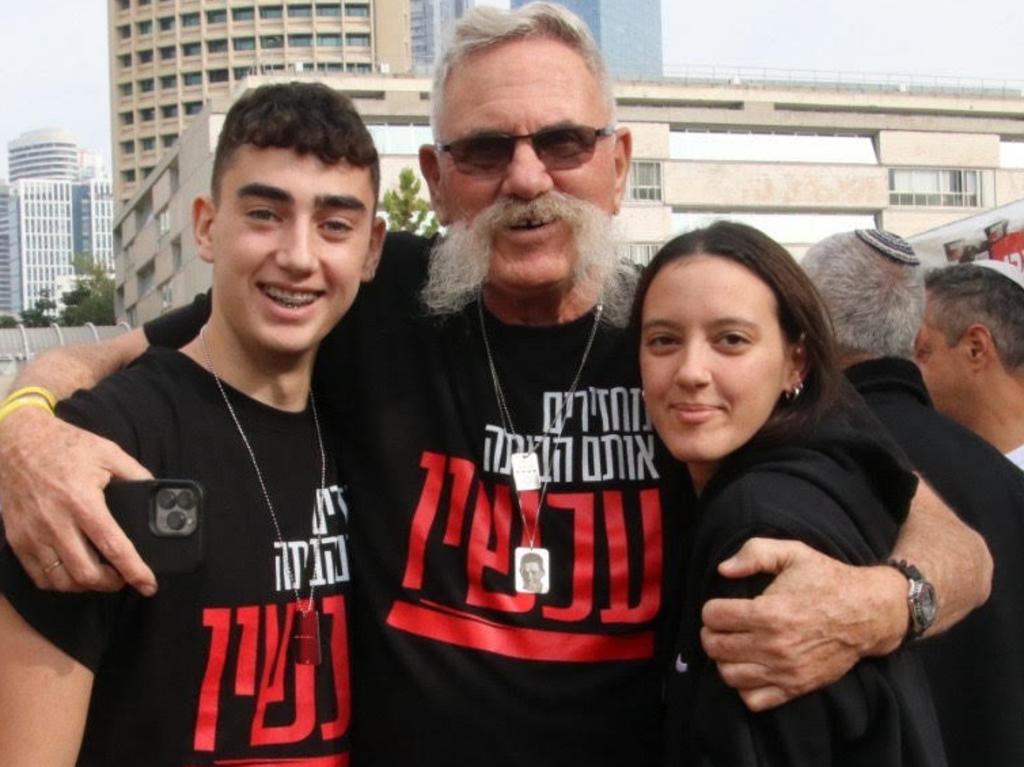


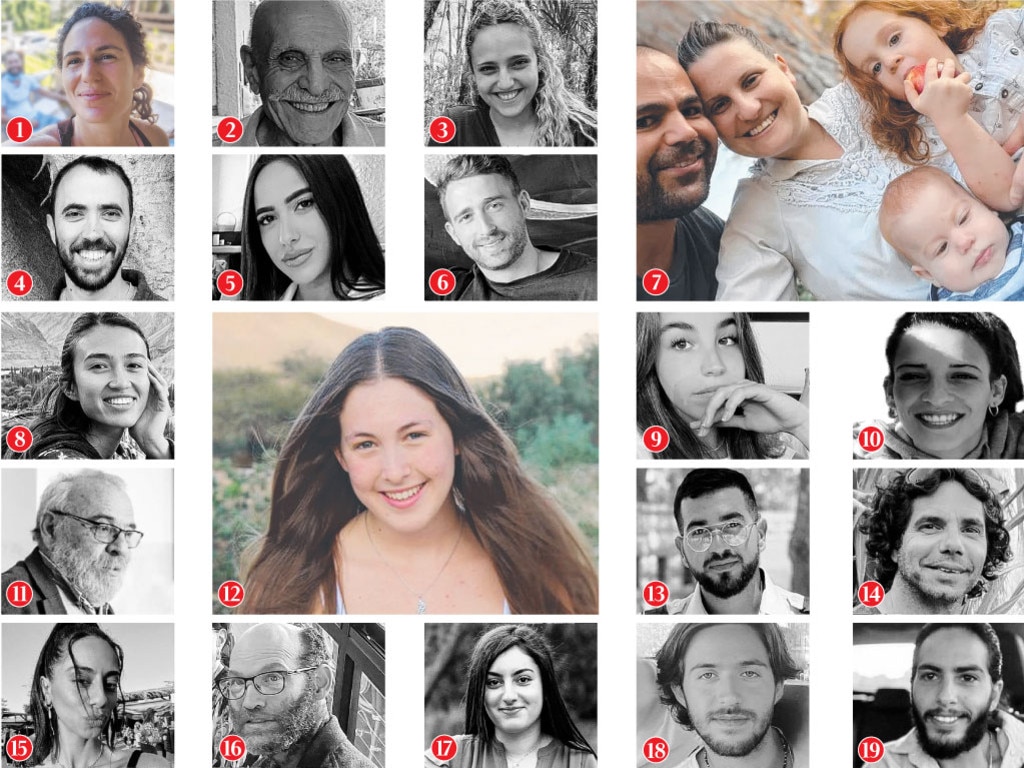
To join the conversation, please log in. Don't have an account? Register
Join the conversation, you are commenting as Logout